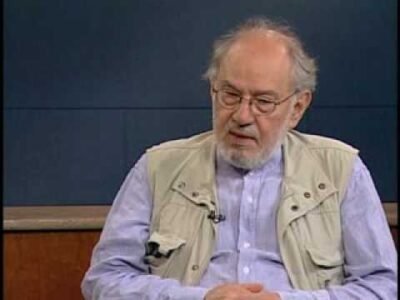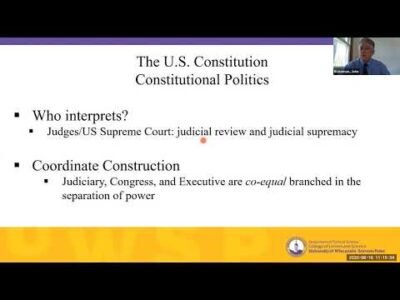Hi, my name is Greg Ganssle, and I’m a part-time lecturer[br]in the Department of Philosophy at Yale University, and a senior fellow at the Rivendell Institute. Today we’re going to talk about part of the philosophical problem of evil. The philosophical problem[br]of evil is an argument beginning with facts about evil,
Leading to the conclusion either that God does not exist, or that[br]it’s most likely the case that God does not exist. So first we need to make a distinction. There’s what has been[br]called “a deductive,” or “the logical problem of evil,” and then there’s what has been called “the evidential problem of evil”.
Deductive or logical problem of evil, I like to call “the[br]square circle objection” or “the charge of contradiction.” It is an argument that to believe that God exists, and that evil exists, is like believing in square circles. There’s a contradiction. The evidential problem, on the other hand, I like to call “the unicorn objection.”
It is not that there’s a contradiction, but it’s pretty hard to believe in God in light of facts about evil. Today I’m going to talk about[br]the logical problem of evil, and how theists, or[br]philosophers who believe in God, begin to answer it. So, first we need to look at what is
The charge of contradiction. Where is the contradiction found? I’m following a famous paper by a British philosopher named John Mackie who began his argument[br]with a couple of premises. Premise one: God exists,[br]and is wholly good, omnipotent, and omniscient. The second premise is that evil exists. So we have God on the one hand,
And evil on the other hand. His aim is to show that these two together entail or lead to a contradiction. He recognizes that the contradiction is not obvious at first. We have to amplify “What does it mean for God to be wholly good,[br]omnipotent, and omniscient?” Once we amplify this, we can see
How these premises together[br]lead to a contradiction. In order to amplify this, he[br]adds two additional premises. Premise three: There are no[br]limits to what an omnipotent, omniscient being can do. Premise four: A good[br]being always eliminates or prevents evil as far as it can. That’s part of what it[br]means to be a good being.
So, Mackie has four premises, and he tries to derive a[br]contradiction from them. We can see pretty clearly[br]that he can succeed. We can take step number five: God can eliminate or prevent[br]all of the evil there is. If premise one is true and God[br]is all-powerful, omnipotent, then he’s powerful enough[br]to eliminate all evil.
Premise six: God will eliminate or prevent all of the evil that there[br]is, because he is good. If premise one is true[br]and God is wholly good, and premise four is true “a good being always[br]eliminates or prevents evil as far as it can,” then step six is true. God will eliminate or prevent
All of the evil that he can[br]eliminate because he is good. So from these six steps, we can see that a contradiction follows. If step five and step six are true, then we get the conclusion that God does eliminate[br]or prevent all evil. Well, if God eliminates[br]and prevents all evil,
Then step eight is true: there is no evil. But the final step, step nine, builds on premise two, the[br]premise that evil exists. And we get a statement “There is evil and there is no evil.” And that is the explicit contradiction. Something is wrong with a valid argument that leads to a contradiction.
Some premise has to be rejected. John Mackie and other atheists think premise one needs to be rejected. It’s not true that God[br]exists and is wholly good, omnipotent, and omniscient. Theists, or philosophers who[br]believe that God does exist, they think the problem is[br]not with the first premise, nor is it with the second premise,
Because it’s pretty[br]obvious that evil exists. Rather, they look carefully[br]at the additional premises, premise three and premise four. Subtitles by the Amara.org community
#Philosophy #Problem #Evil #Part






No comment yet, add your voice below!